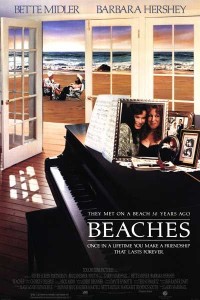Popfilter Goes to the Movies
The Place Beyond the Pines
Director Derek Cianfrance clearly wants to prove that stories do not need to be told in a traditional linear fashion. His previous effort, Blue Valentine, walked us through the demise of a relationship by intercutting scenes from its romantic beginning with much bleaker glimpses of the same couple on the day they finally split. Even if you consider Blue Valentine a success, which many don’t, the level to which Cianfrance pushes his non-linear storytelling in The Place Beyond the Pines makes it easy for one to wonder whether or not he’s already gone too far.
Maybe I’m just a dumb guy trying to watch smart people movies. I have talked extensively about the Rock in two out of my past four articles. If I were allowed to say it my true review of The Place Beyond the Pines would be one sentence and would say “I should probably watch it again.†I just want you to know that in this case any problems I have with this particular film could very well be the result of the fact that the only movies I watched until I was sixteen were pirated VHS copies of old James Bond movies and Gary Marshall’s Beaches. I’d still like to think that I know at least one thing about a thing or two.
So with what expertise I can muster I’ll say that The Place Beyonds the Pines is an extremely ambitious film. No one will ever fault this movie for trying too little. And despite being the most sprawlingest movie of the year so far it manages to keep hitting on its central themes of guilt and regret. If, like me, you factor “shits given†heavily into your equation for overall rating, The Place Beyond the Pines has done a lot for itself. Still, maybe what this movie needed was a dumb guy – not me, but like me – to ask whether or not all that ambition helped.
I happen to be a big fan of Blue Valentine. That story could have just as easily been told in a linear fashion but mixing up the order of events let Cianfrance communicate his point bluntly and effectively. Similarly, The Place Beyond the Pines doesn’t need to be told the way it was. It could’ve just as easily followed one character all the way through and showed us the same story. The director’s goal was to switch narrative focus from one character to another so that we witness firsthand the consequences one generation’s choices will create for the next.
The key difference is that when you’re mixing up the narrative chronologically you still get to know and care about the same characters. When the story is chronologically similar but the viewpoint jumps around it’s easy to be left wondering why we’re supposed to care about all these new fellers. Confusing things even more is the fact that although the events in The Place Beyond the Pines do unfold in chronological order, it’s still not exactly a straightforward timeline. A 15 year jump forward in the middle of a movie is a lot to ask of us when you’ve already pulled a bait & switch with the main characters.
It just basically wasn’t quite what I expected. So instead of saying in one sentence “I should probably just watch it again,†I’ll say it in a whole paragraph, right here. Cianfrance is trying to do things differently. I was prepared to watch Ryan Gosling riding bikes, robbing banks and fucking Eva Mendes – basically a redneck Drive. But that’s not what the director wanted to give us and frankly, I respect him for that. He wanted to tell a more complex story with morals and stuff. Knowing now that I’m not going to be able settle in and get too cozy with any one character, I’d like to give it another shot and see whether or not Cianfrance’s approach did add to the story.
All of that is just to cover my own ass. The first time I saw There Will Be Blood my exact words were “It’s just a boring movie about some old guy,†so I’m more than willing to admit I’ve missed a nuance or two before. So I will re-watch The Place Beyond the Pines at some in the future when I don’t have to pay for it, but I think that my opinion will stay about the same. It’s an ambitious but flawed film from a director who shows real promise. He hasn’t gotten tremendously better or worse since Blue Valentine, he just applied his method to a different story that it wasn’t as compatible with. Hopefully this will be the kind of movie that we can watch in ten years and enjoy because we know what the director was trying to do, based on all the times he did way better afterwards. If not, it’s still a movie where Ryan Gosling plays a troubled loner reluctantly caught up in a world of crime. How many more times are we gonna get to see that?





